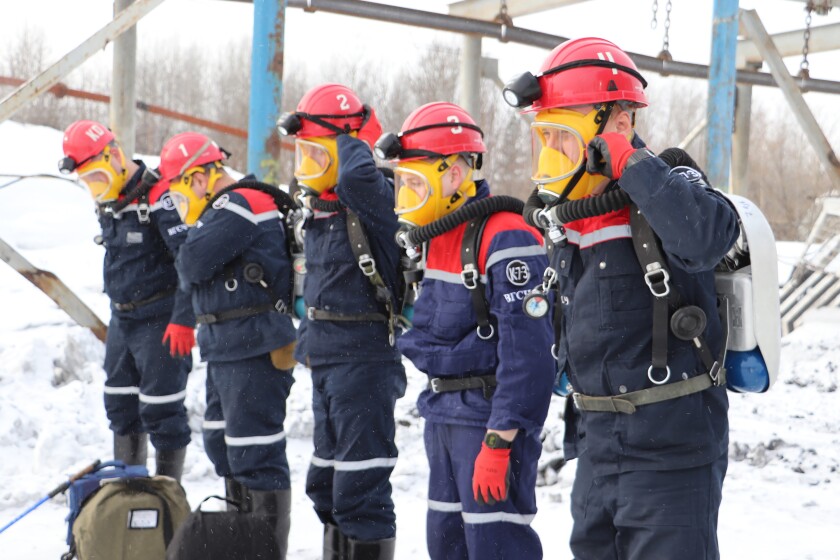A French app called The Sorority, aimed at preventing violence against women, was launched a year ago and has recently made its debut in Morocco. It has been a breath of fresh air for its early adopters in the North African country, who denounce what they see as a society plagued by sexual violence.
“If we can help female victims of violence in France, we can do it in every country,” said Priscilla Routier Trillard, a 34-year-old Parisian, describing her decision to export The Sorority to the other side of the Mediterranean.
Launched in France in September 2020, The Sorority became available in Morocco on October 16. The app relies on women to protect each other from violence – whether at home, at work or on the street – with an alarm system that sends an alert if someone nearby is in imminent danger using geolocation technology. Instant messaging then allows the victim to contact other users and get help immediately. The messaging function also allows users to get moral support from other women.
‘A real social problem’
Sarah*, 32, was one of the first Moroccan women to join The Sorority. From the age of 14, she faced regular harassment when walking to and from school. A boy physically attacked her younger sister Amal*, who was 13 at the time.
The two sisters grew up in the upscale Les Princesses area of Casablanca. But in Morocco, Sarah said, “you can be harassed anywhere by any type of man”.
Asma El Ouerkhaoui was similarly quick to join The Sorority upon its launch in Morocco. A 39-year-old computer scientist living in Rabat, she dresses like a tomboy. “It would be too risky to wear a skirt,” she said. “But traditional dress doesn’t protect you either; friends of mine who wear a veil are also targeted.”
Sarah said that “the moment an abuser recognises you’re a woman, you’re screwed. It doesn’t matter what type of fabric is covering you.”
She never felt such a “threat” when living in France, said Sarah, who studied law in Bordeaux. “There’s a real social problem in Morocco; we need to stop hiding our faces with veils.”
Like all the Moroccan Sorority members who spoke with FRANCE 24, Sarah said that harassment started as soon as she went through puberty.
“As a Moroccan woman, it becomes clear that you’re no longer a child when certain men – men your father’s age – look at you with a lustful gaze.”
Victim-blaming
The list of recent sexual assault incidents in Morocco is staggering: Sexual abuse is filmed and broadcast on the Internet by the perpetrators; a string of incest cases hushed up by families; the rape of children; a 96-year-old woman sexually abused by a group of young people.
The figures are striking too: A 2019 survey by Morocco’s Ministry of the Family showed that more than half of Moroccan women say they have been victims of sexual violence. But only 6 percent of them have dared to file an official complaint – and less than 10 percent of female victims of domestic violence leave abusive spouses.
All the people contacted by FRANCE 24 said they know women who have been raped or beaten by their husbands. None of them felt they could speak on the record, despite a promise of anonymity.
Zainab Aboulfaraj, a journalist from Casablanca, said this was unsurprising. “The most conservative fringe of Moroccan society manages to propagate the idea that many women who have been raped deserved what happened to them – whether because of their behaviour or because of what they were wearing.” Consequently, it is deemed “extremely shameful” for women to talk about rape, she continued.
Working on a project in the spring of 2020, Aboulfaraj thought it would be impossible to talk to rape victims about what they went through. “The victim support associations I contacted thought I was crazy,” she said. After several months, four women finally agreed to talk to her. But they kept their first names and details of where they lived a secret even from her.
Thus the web series #TaAnaMeToo (“#I am also MeToo”) was born. Four rape victims broke their silence through the anonymity provided by the animated format.
Aboulfaraj had long hidden her own trauma as if it were a form of shame. Before now she had never dared tell anyone about the day when a gang of boys surrounded, attacked and groped her in Rabat when she was 14.
“I healed my own wounds by helping other women heal theirs,” she said.
A small audience, for now
“If only I could have used an app like The Sorority in 2004,” said Loubna Rais, an international development consultant. One night that year, Rais miraculously survived an attempted rape and found herself all alone in an unfamiliar town.
Along with other activists from the Masaktach (“We won’t be silent”) association, Rais had long dreamed of an app like The Sorority.
Now she is one of 117 Moroccan women who have downloaded the app. But only about 40 of them – mainly in the major cities of Rabat and Casablanca – have actually registered on The Sorority
Morocco enjoys relatively good Internet access, and 75 percent of Moroccans own a smartphone. But there may be an intrinsic flaw in the app.
With the monthly minimum wage at 2,929 Dirham (€271) and Internet access costing 10 Dirham (€1) per gigabyte, what percentage of the Moroccan population can actually afford to participate in The Sorority, asked Raw, the creator of Sobisate.tv, an Instagram channel dedicated to feminist causes in North Africa.
“Let’s also not forget that this is a French-language app, so it doesn’t reach the majority of the Moroccan population, who either read only in Arabic or are illiterate,” said Raw, who uses a pseudonym and who has nevertheless signed up with The Sorority.
But victim-blaming remains a big problem. In January 2021, the well-known Moroccan dancer Maya Dbaich mocked some rape victims by saying “they were asking for it”.
In September, a video of the sexual assault of a young woman in Tangier in northern Morocco was shared online by a 15-year-old boy. That gave rise to a widely viewed interview on the ChoufTV network in which a female neighbour of the attacker came to his defence and blamed the woman.
The Moroccan media has made much of the fact that women also blame the victims. But Sarah said it is important not to fall into the simplistic trap of thinking that “women are the worst enemy of other women”.
“The society in which we live instils in everyone the idea that women are at fault,” Sarah said. “And some women have internalised this way of thinking.”
Although the picture looks gloomy, “the winds of change are blowing in Morocco”, according to Aboulfaraj.
“The Moroccan youth was once quite reserved, but now they have social media,” she said. She, too, decided to join The Sorority after speaking to FRANCE 24.
Instagram accounts such as Sobiaste.tv and La vie d’une Marocaine (“The Life of a Moroccan Woman”) have relayed hundreds of testimonies about the abuse suffered by women and girls in Morocco.
But these posts aren’t just shining a light on sexual violence – they are also denouncing the Moroccan state and the cultural norms that help cover it up.
Patriarchal societies in general, and Morocco in particular, try to instill a belief that women should see other females – first and foremost – as rivals, Sarah said.
“But The Sorority is bringing a kind of revolution in Morocco, because it shows us that isn’t true.”
The people behind the app have been holding training sessions to prepare people for situations in which they have to help women under attack. During one early test, Sarah sent out a false alarm. Several app users immediately got in touch with her, ready to take action to get her out of harm’s way.
“I understood then that The Sorority could inspire women to travel for miles to rescue a complete stranger,” she said. “That filled me with renewed strength.”
*Names were changed to ensure anonymity.
This article was translated from the original in French.













